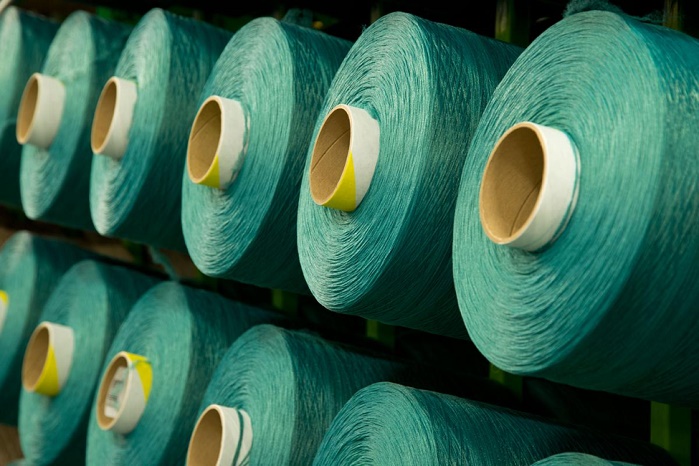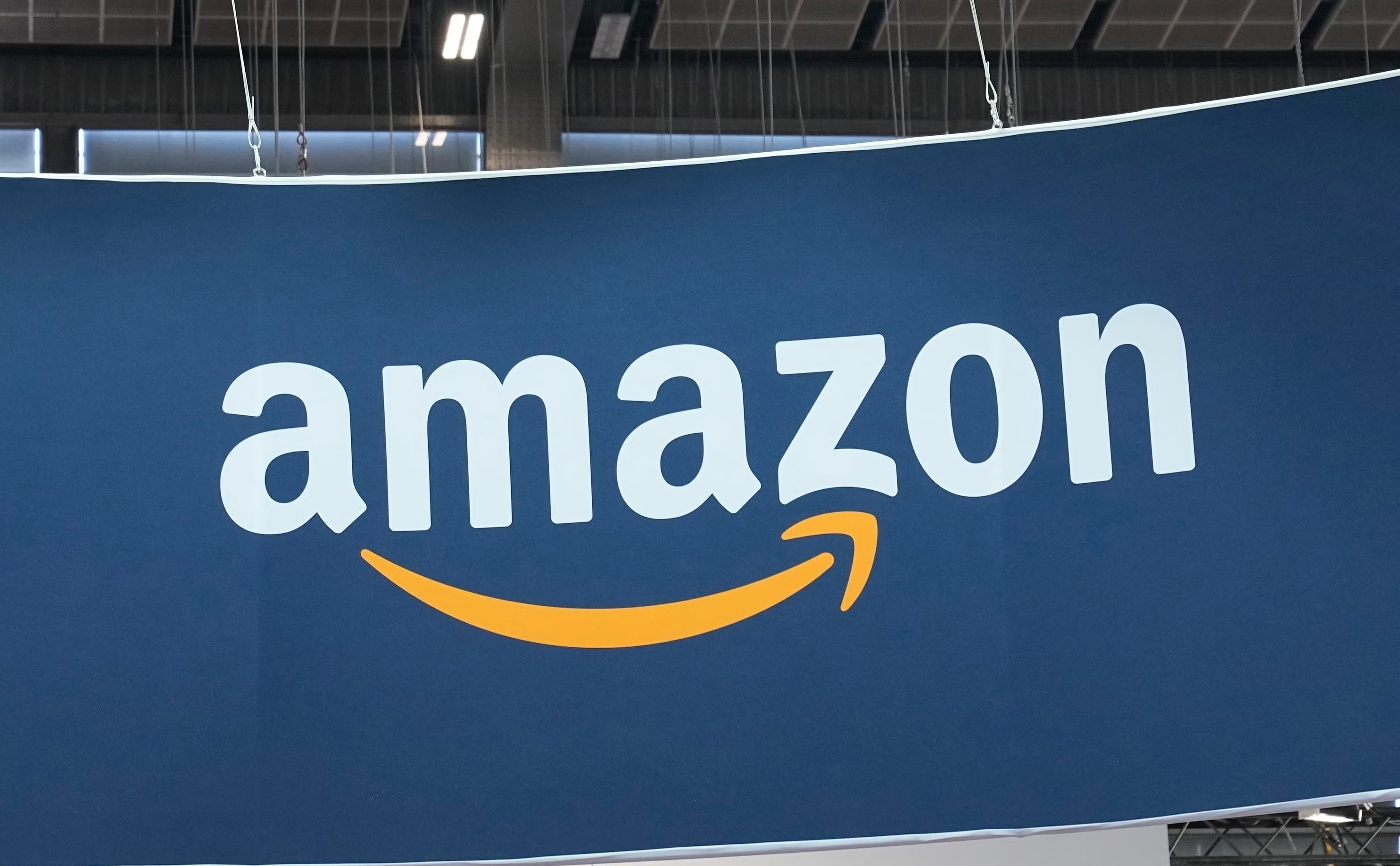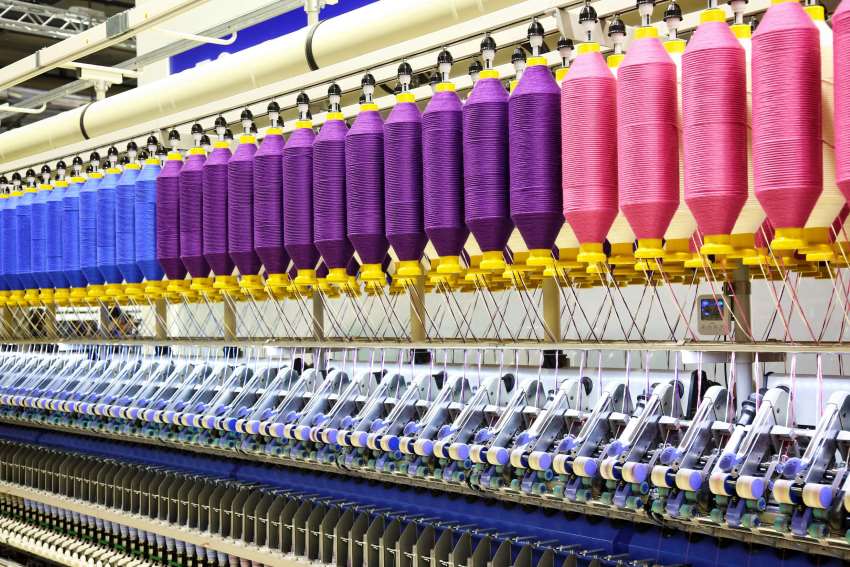FW
For the third quarter Century Textiles’ profit fell by 38 per cent. This was due to weakness in its textile business and losses in its real estate unit.
The home textile business revenue at its textile unit Birla Century fell by nine per cent, accounting for about 22 per cent of total revenue. Higher input prices led to sales volatility of garments and fabrics. While demand in its domestic markets was stable, exports took a hit amid recessionary concerns. About three-quarters of the Mumbai-based company’s total revenue comes from its pulp and paper business, where sales rose 18 per cent in the quarter. That helped consolidated sales increase nearly by ten per cent. While revenue in the Birla Estates business rose nearly five per cent from a year ago due to new projects in Mumbai and Bangalore, its loss widened from the prior quarter. That weighed on overall net profit and also dragged consolidated earnings before interest, taxes, depreciation and amortisation (ebitda) down 13 per cent.
Century Textiles and Industries is the flagship company of Aditya Birla. Founded in 1897, Century Textiles specialises in textiles including cotton textiles, yarn, denim, and viscose filament rayon yarn. It also has a pulp and paper business.
The Gujarat textile industry is anticipating a strong recovery in demand.
Cotton prices have stabilized. Lower volatility in cotton prices has increased confidence in the domestic industry, and the market has seen a substantial number of orders after January 15, 2023. The industry expects export demand will rise further after the Chinese new year.
There has been a strong arrival of raw cotton at market yards in the last fifteen days with all-India numbers of around 1.50 lakh bales. In Gujarat, around 45,000 bales arrive every day, while in Maharashtra this number is about 40,000 bales. So far Gujarat has registered the arrival at yards of 35 lakh bales this season, while the all-India number is 1.20 crore bales. Strong supply has stabilized cotton prices and for the last one week they have remained in the Rs 61,500 to Rs 62,500 per candy range.
This is probably the first time in a year that prices have remained stable and confidence in the market has been boosted.Indian cotton is now only marginally more expensive than that from the international market and the industry believes stability in prices will enable it to export more. The domestic textile industry saw substantial demand in the festival and wedding season and with low inventory new demand has emerged after January 15.Weaving units and textile processing units are now running at over 60 per cent capacity.
World Textile Conference will be held in Ahmedabad, February 25 to 26, 2023.
How the textile sector can diversify in challenging times will be the underlying theme of the global event. The conference will highlight the need for investments and R&D in value-added textiles, the market outlook and future of nonwovens, including how regulations and innovations are shaping the nonwovens sector and innovation pathways in the advanced textiles sector.
One discussion will be on how the industry can adopt circular approaches toward conserving resources and be successful. There will be a presentation on how challenges can be met and overcome based on practical approaches such adequate stock maintenance, quality control and new product development.
The event has been organized by the world’s largest textile-related professional organization, Textile Association (India).With uncertainty lingering in the globe in terms of political and economic instability in certain regions, there is a need for revival of the manufacturing sector.
Textile manufacturing received its due spotlight during Covid with the development of different PPE materials that can save lives. The textile sector can contribute to the growth of the global economy and enable job creation by focusing on diversification and innovations in developing advanced and sustainable products.
FiltXPO will be held in the United States, October 10 to 12, 2023.
Companies from more than 15 countries in filtration and separation will connect with some 1,500 industry professionals and launch their innovations. Exhibitors will connect with industry decision-makers, discover unparalleled new partnerships, and highlight their capabilities over three power-packed days.
This is North America’s only exhibition and conference dedicated exclusively to filtration and separation. It is now being held on an 18-month cycle, making it an especially valuable opportunity to generate new business and grow global relationships with unique exposure to the North American market.
Exhibitors can meet with current filter industry contacts and new prospects in one location. FiltXPO will draw senior-level professionals from around the world in major market segments involved in the design, manufacture, sales, and use of filtration/separation products and services.The direct engagement that FiltXPO offers is irreplaceable and the event provides the opportunity for participants to step up their game in providing impactful indoor air quality solutions.
A significant feature of the event will be the technical conference. Five panels of global industry experts will debate filtration and separation’s most compelling challenges such as indoor air quality, filtration sustainability, standards and technologies.

India’s e-commerce industry is flying high while being driven by increasing pan-India mobile phone adoption across all social and economic segments along social commerce retail giants like Amazon and Flipkart leading the bandwagon. The e-commerce market size is currently estimated at $75 billion in 2022 with the potential to grow to $111 billion by 2024 and $200 billion by 2026, at CAGR of 20-22 per cent.
India is currently becoming even more digitally savvy with new global technologies like 5G network and ONDC (Open Network for Digital Commerce), quick commerce and hyperlocal delivery across the country. Studies by some leading research companies like IBEF date of December 2022 and TRAI data shows the tremendous rise after the Covid years in e-commerce trade and the transition from feature phones to smartphones now considered a necessity rather than a luxury.
Amazon and Flipkart steal the show
The online retail market is currently estimated to be 25 per cent of the total organized retail market and is expected to reach 37 per cent by 2030 with Amazon and Flipkart holding around 60 per cent market share. Amazon India is the biggest preferred online destination for sellers and currently has over 10 lakh sellers on its e-commerce platform. The largest category on Amazon is the online smartphone channel with a 47 per cent market share. The marketplace offers 168 million products to Indian customers with over 4,000 products sold on Amazon per minute. It’s also a leader in most core product categories such as consumer electronics and is doing really well in Tier I cities having over 5 million Prime subscribers who get added benefits when they buy.
Following a close second is Flipkart, a marketplace, hosting 4.2 lakh sellers and including digital commerce entities such as Flipkart, Myntra, Flipkart Wholesale, Flipkart Health+, Shopsy and Cleartrip. The Flipkart Group led the online Diwali festive sale with around 62 per cent share in terms of GMV followed by Amazon with a GMV of around 26 per cent. Flipkart currently leads in the apparel vertical thanks to the acquisition of Myntra and has launched a social e-commerce ‘Shopsy’ app that empowers aspiring local entrepreneurs to set up online shops. To outdo its competitor, Flipkart increased its supply chain during the pandemic and is currently promoting free signups along with a loyalty programme that offers free delivery and early access to sales.
JioMart, Meesho join the bandwagon
Many others like Meesho, JioMart, Myntra and Nykaa now give stiff competition to this duopoly with each new platform having its own USP. Meesho is a social commerce/reseller platform where over 70 per cent customers are from Tier II, III cities who are usually housewives or fashion influencers who operate WhatsApp and Facebook groups, with hundreds of potential buyers looking for value for money options.
JioMart, that started as an online grocery store now sells almost all products. Unlike Amazon and Flipcart, it has a limited number of sellers as independent third parties. Most listings on JioMart are from Reliance's brands, and deliveries are dispatched from the 15,000 Reliance Retail stores across India.
Myntra is the online fashion arm of Flipkart and presently Tier-II markets contribute 40 per cent to its sales, especially during mega sale events. And Nykaa is a market leader in the online beauty and personal care market (BPC) operated by FSN E-Commerce Ventures. It offers delivery services to around 90 per cent pin codes across India. Indeed, with shoppers from Tier-II, III cities taking rapidly to online buying along with rising aspirational middle-class, the way ahead looks extremely promising for India's e-commerce landscape.

One of the world’s largest and most reputed textile industry shows, the three-day Munich Fabric Start that concluded on January 26 showcased multi-layered and complex new materials and presented the colour palette for Spring/Summer ’24. The show also discussed efficiency and transparency through digital transformation and steps towards full sustainability. The sub-show on denim, street wear and sportswear, the two-day Bluzone that concluded a day before also drew visitors from across the world. Over 14,000 visitors from 58 countries, especially from the DACH region, Benelux, Scandinavia, the UK and Turkey attended the multi-event exhibition.
The next edition of Munich Fabric Start and Bluzone exhibition will take place in July 2023 to present Autumn/Winter 2023-24 materials and trends. It will also continue the search for ultimate goal of sustainability through digitalized processes. Organized by the Munich Fabric Start Exhibitions GmbH, the show is of particular importance as it precedes the Paris and Milan international trade shows calendar and is useful for its research, sourcing contacts and information exchange within global traders and manufacturers.
Impressive list of industry attendance
The exhibition was attended by product managers of leading brands including About You, Adidas, Akris, Alberto, Allude, Best Secret, Bestseller, Betty Barclay, Bogner, Boss, Brax, C&A, among others. As Sebastian Klinder, Managing Director Munich Fabric Start commented, “Munich Fabric Start and Bluzone were well attended and we had two, respectively three days of intense conversations, game-changing business decisions, inspiration and innovation. Our conference program with over 90 top-class speakers was more extensive than ever before. The interest in new developments, especially in the areas of digitization and sustainability was extremely high and is now going much more into depth.” However, the just concluded exhibition saw 20 per cent less attendance than the show in January 2020 which is attributed to the still-cautious executive travel, particularly from Asia and economic tightness in many countries.
Speaking about the Bluzone, Francesca Polato, Berto Industria Tessile said, “The increasing number of fairs dedicated to the denim sector is clear testimony to the particular attention that the fashion business, and not only, is paying towards this sector. As for German business, Bluezone is definitely the most important exhibition. This show allows us to have the first real and tangible feedback on our work.”
Key highlights
Finding new aesthetics that are within the parameter of sustainability was discussed at great length as the industry feels strongly about not compromising on the aesthetics of fabrics which if not delivered would result in consumers not embracing sustainable fabrics in larger numbers. This was accepted as a challenge for the sector’s R&D units. As a spokesperson of Bluzone pointed out, denim experts Calik Denim, Iskur Denim, Kilim Denim and Tejidos Royo are working towards the goal of high-tech finishing solutions that are low on environmental impact. This is because of using sustainable dyeing methods, 0 per cent water and chemicals usage and the use of renewable energy sources.
Using technology to increase efficiency was another popular topic as the current and predicted market situation will continue to stress on decreasing production cost to reflect the mood of the retail sector and withstand recession and price inflation across goods and services. The EU Green Deal was also an important part of the three-day dialogues as the EU Strategy for Sustainable and Circular Textiles has started its implementation and manufacturers, exporters and importers are expected to comply.
Tirupur’s knitwear exports fell by some 19 per cent in the third quarter.
There was a contraction in demand in key markets such as the US and the European Union during the December 2022 quarter despite buying seasons such as Thanksgiving Day, Christmas, and New Year.
Though the order placement is gradually increasing, and January 2023 saw some increases, these are not promising and the declining trend is expected to continue in the fourth quarter. In dollar terms, knitwear exports from Tiruppur declined by ten per cent when compared with December 2021. Overall, knitwear exports from India fell two per cent during December 2022 as against December 2021.The declining trend for Tirupur exporters started in August 2022 as an impact of the Russian-Ukraine war. Tirupur accounts for about 55 per cent of knitwear exports from India.
High inflationary conditions and recessionary trends in key markets of the US and EU kept the textile and apparel demand subdued in 2022, especially the latter half. Volume growth in most markets remained in negative to nil zone, with market size increase happening due to higher product costs. These dwindling orders have caused some financial stress for exporters in Tirupur and the industry has requested for an increase in interest subvention.
Texworld Evolution will be held in France, February 6 to 8, 2023.
There will be 750 exhibitors from over 20 countries and the exhibition center will concentrate in one place most of the global sourcing for fashion brands, from ready-to-wear to luxury.
The event presents an opportunity for buyers to measure the new balance between the major international sourcing zones after the transformations related to the Covid crisis. There will be 220 Chinese companies, 122 Turkish manufacturers, 43 Korean companies and 45 Indian companies. Thai embroiderers and Indonesian manufacturers will also be visible. Africa will be represented by 270 companies. The African continent will also be represented with companies from Ethiopia and Ghana.
Several round tables and conferences will open debates on themes such as the contribution of Web3 in the fashion and clothing industry, secondhand markets, or ways to make a company sustainable without compromising its competitiveness. Other highlights will revolve around the issues raised by sustainable fashion and recyclability. A conference on the sourcing offer in Ghana will finally allow uncovering the industrial potential of this country.
The February edition also includes a revisited sustainable sourcing itinerary. This will bring together a hundred companies that have implemented CSR initiatives in an operational manner.
Ralph Lauren has launched a cashmere sweater that is certified Cradle to Cradle (C2C) Gold.
It is being made available under the men’s brand Purple Label and the women’s brand Collection and is the first of five C2C products planned by the company. It is woven from fine cashmere fibers, dyed in rich hues and featuring a transformed signature label cut from organic cotton. The sweater has gone through a multi-step certification process with the Cradle to Cradle Products Innovation Institute, a non-profit that has set the global standard for products that are safe, circular and made responsibly.
The kind of luxury Ralph Lauren stands for has always been about timelessness, authenticity and a life well-lived. Since the brand believes true luxury encompasses not only a product’s beauty and quality, but how it was made and how it will endure, it created the industry’s first C2C-certified luxury cashmere product.
As part of the C2C certification process, Ralph Lauren has also launched a recycling program for 100 per cent cashmere in partnership with Prato of Italy – a leading textile production company combining science and technology to create a circular economy manufacturing system for high-quality wool and cashmere. The program, initially available in North America and Europe, allows consumers to ship their 100 per cent cashmere items from any brand to Prato to be recycled.
Pure London (UK, February 12 to 14, 2023) will be bringing together the most forward thinking and creative brands from around the world. The aim is to celebrate beautiful craftmanship, design and style and also highlight the importance of ethical and sustainable fashion.
Contemporary fashion brand Emme Marella is designed for dynamic and style savvy women. Italian style merges with the latest trends to create an energy-filled collection which celebrates colour and texture. Sophisticated cuts and creative details create an exuberant yet feminine range. Persona by Marina Rinaldi will feature elegant everyday women’swear that is modern, laidback, and youthful. An easy-going spirit runs through the line which features printed separates, relaxed tailoring, directional knitwear, and chic dresses.Queens of Archive will feature show-stopping, timeless and feminine pieces that are designed in-house using bespoke prints and fabrications. The brand evokes a hybrid culture fusing design, music and creative storytelling to bring a layered, more considered product and story. iBlues is a feminine brand with an eye-catching collection in striking bold colours. Designs are full of attitude made from high quality fabrics with attention to detail.
Pure London is the UK’s leading trade fashion buying event and has the largest women’swear offering in the UK and the largest offering of international brands as well as exciting onsite trend partner and new sustainability initiatives.












